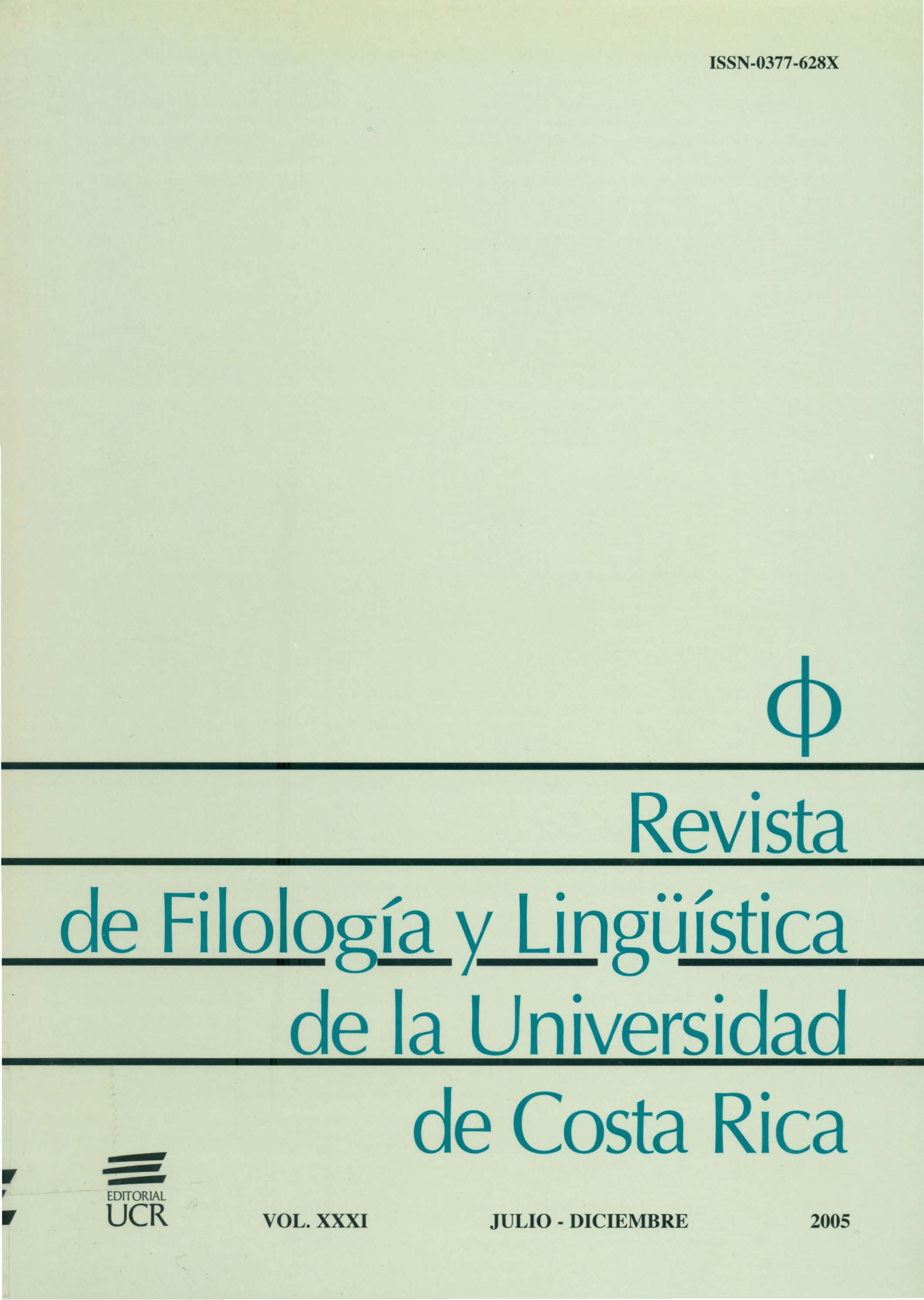Abstract
The following article examines fragmentation within totalitarian systems, in general, and in narratives, and its representation. The analyzes focuses in two opposing approaches to the term and its apparent deconstruction, as well as the implications that a new view of this term could mean in terms of literary interpretation and elsewhere.References
Bertazoni, Dona. and Janis Judson. 2002. "El derecho, los medios de comunicación y la Cultura". La Nación. August 30: Viva 10.
"Borderlands: Remapping Zones of Cultural Practice and Representation. Department of Communication." University of Massachusetts 2000 <http://www.umass.edu/grads/program/index.shtml>.
Childers, Joseph and Gary Hentzi (eds.). 1995. The Columbia Dictionary of Modern Literary and Cultural Criticismo New York: Columbia UP.
Di-Bella, José Manuel, Sergio Gómez Montero and Harry Polkinhorn (eds.). 1987. Literatura de frontera. California: San Diego State University.
Green, Arthur. 1952. Sociology. An Analysis of Life in Modern Society. New York: McGraw-Hill Company Inc.
Hicks, Emily. 1987. "Border Writing and The Subject." En: José Manuel Di- Bella, Sergio Gómez Montero and Harry Polkinhorn (eds.).
Makaryk, Irena R. 1994. Encyclopedia of Contemporary Literary Theory. Toronto: University of Toronto Press.
Meyers, Kari and Gilda Pacheco. 2003. The Perceptive Process: An Introductory Guide to Literary Criticismo 1SI Ed. San José: Editorial de Universidad de Costa Rica.
Seidman Steve (ed.). 1995. The Postmodern Turn. New Perspectives on Social Theory. New York: Cambrige University Press.
Trinh T., Minh-Ha. 1992. Framer Framed. Great Britain: Routledge.

